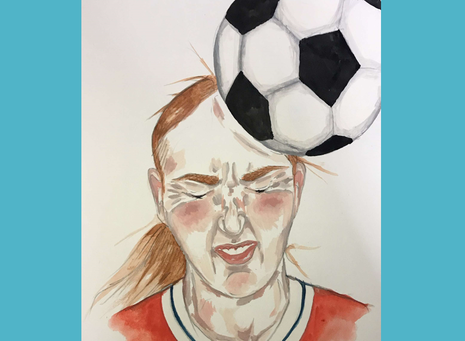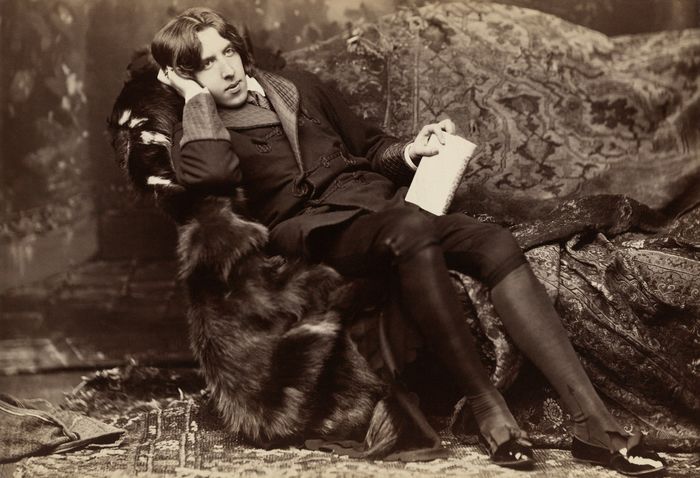The ‘tomboy’ trope and its internalised misogyny
Kirsty Stark reflects on the evolution of her childhood self-identification as a ‘tomboy’

Back in the retrospectively idyllic summer of 2018, a taxi driver said to me, “I bet you’ll be glad when the World Cup is over.” Objecting to this, I sought to disprove him by regurgitating any piece of football trivia I’d overheard from my Dad or the news, which elicited from him the concession that I did, in fact, “know about ”
However, the pride I felt in this anecdote dissolved with the realisation that my indignation didn’t derive from his assumption of my lack of sports knowledge but rather from my embarrassment that he was right. Having lost the investment I’d once had in the game (I watched our local first division team play most weekends and I was the only girl in my school’s football club), I didn’t give a toss about football.
“I felt embarrassed for choosing traditionally feminine interests over male ones”
I therefore concluded that my response to the taxi driver was as rooted in misogyny as his original question: I felt embarrassed for choosing traditionally feminine interests over male ones because it had been hard wired into me that anything feminine was inherently inferior to anything masculine. The more I thought about it, the more I realised that I never enjoyed football in the first place. I used to spend every football match willing the 90 minutes to go faster, and the one memory I have of that football club is being walloped in the head by the ball so hard that I got a concussion. I only stuck with it for so long because I was desperate to reject femininity and maintain my ‘tomboy’ persona; I must confess to using the phrases “I’m not like other girls” and “I prefer being friends with boys, it’s less drama” during this time.
“How do I know that I don’t still hold the same internalised misogyny that caused me to feel ashamed for prioritising makeup and clothes over football only three years ago?”
I took my embracing of traditionally feminine pursuits as evidence that I had grown out of this internally misogynistic and ‘pick-me’ attitude. But how do I know that I don’t still hold the same internalised misogyny that caused me to feel ashamed for prioritising makeup and clothes over football only three years ago? After all, only a few months before this taxi incident I had narrowly escaped the clutches of the ‘red pill’ side of the internet. If, then, I’m not quite the uber-empowered feminist that I had naively believed myself to be in recent years, maybe my transition to more traditionally feminine interests was influenced by the pressure to conform to gender roles rather than any genuine personal interest.
I like to think that the way I physically present myself is determined solely by my own tastes – surely the fact that I’ve worn makeup more often in lockdown, when no one will see me, than at any other times proves this? Unfortunately not, it seems. I suspect that the reality is that the male gaze is so pernicious that, even while alone, my sense of self-worth depends on my adherence to its standards of physical appearance.
It is Margaret Atwood in The Robber Bride who, in my opinion, best articulates the idea of the male gaze:
“Male fantasies, male fantasies, is everything run by male fantasies? Up on a pedestal or down on your knees, it’s all a male fantasy: that you’re strong enough to take what they dish out, or else too weak to do anything about it. Even pretending you aren’t catering to male fantasies is a male fantasy: pretending you’re unseen, pretending you have a life of your own, that you can wash your feet and comb your hair unconscious of the ever-present watcher peering through the keyhole, peering through the keyhole in your own head, if nowhere else. You are a woman with a man inside watching a woman. You are your own voyeur.”
The male gaze model describes women as objects shaped entirely by – and thus inextricable from – male desires, just as Galatea was to Pygmalion. Is the male gaze therefore impossible to escape? My experience suggests that it does indeed run very deep; I previously have bought into male objectification of bisexuality by dismissing my own – very real - attraction to women as a ploy for male attention and, despite my own revulsion, have felt flattered by catcalling and harassment.
However, there are plenty of women who would be very hostile to the notion that they are not pretending to have oriented their existences around male desires, either because they feel that they have liberated themselves from it or because they never believed in it in the first place. This demonstrates the very personal nature of each of our relationships with the notion of a male gaze (which also, importantly, vary on the basis of race, class, and sexuality) and provides hope that it is possible to escape its weight. Quite frankly, I have no idea how to do this. But because the issue is such a personal one, it seems to me that there can’t be one prescriptive solution to it. It’s up to each of us, then, to learn to identify examples of the male gaze in the media we consume, in the world around us, and in the way we talk to ourselves, so that we can begin to discern what we value outside of its influence.
 News / Colleges charge different rents for the same Castle Street accommodation2 March 2026
News / Colleges charge different rents for the same Castle Street accommodation2 March 2026 News / News in Brief: waterworks, wine woes, and workplace wins 1 March 2026
News / News in Brief: waterworks, wine woes, and workplace wins 1 March 2026 News / Climate activists protest for ‘ethical careers policy’1 March 2026
News / Climate activists protest for ‘ethical careers policy’1 March 2026 News / Angela Merkel among Cambridge honorary degree nominees27 February 2026
News / Angela Merkel among Cambridge honorary degree nominees27 February 2026 News / Private school teacher who lied about Cambridge degree barred from teaching27 February 2026
News / Private school teacher who lied about Cambridge degree barred from teaching27 February 2026









